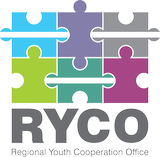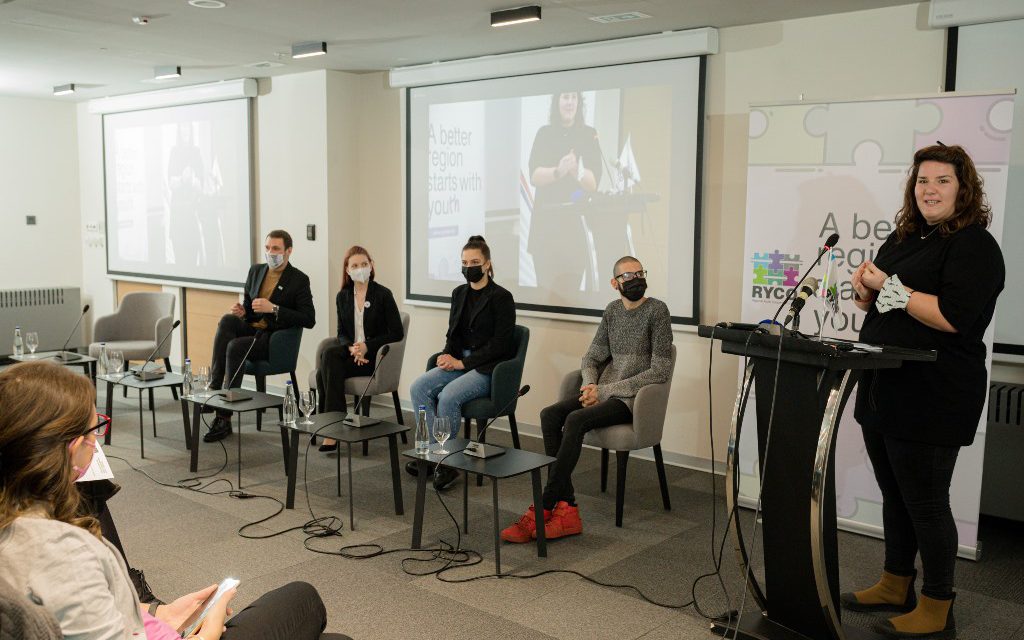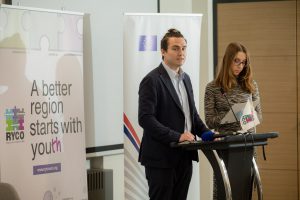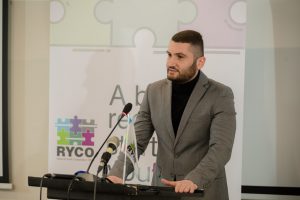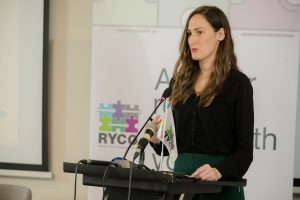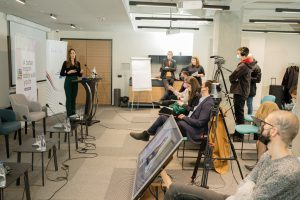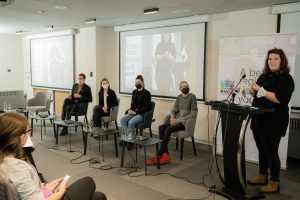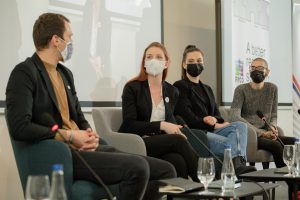BELGRADE – The Regional Youth Cooperation Office (RYCO) organized a final event within its EU-supported project “Enhancing Youth Cooperation and Youth Exchange in the WB6” in Belgrade on Monday, February 7, 2022. The event presented the results of four projects from Serbia supported within the 4th RYCO Open Call for Project Proposals. It was attended by representatives of RYCO, the Delegation of the European Union to Serbia, RYCO beneficiaries, and local partners.
The supported projects successfully enhanced youth cooperation in the fields of dealing with the past, youth empowerment and development, social inclusion of youth at risk, intercultural dialogue and freedom of media. They were implemented by the Helsinki Committee for Human Rights in Serbia, the Drug Policy Network for South East Europe, the Independent Journalists’ Association of Vojvodina and the Red Cross of Vojvodina as the lead applicants.
Head of the RYCO Local Branch Office in Serbia Ms Ivana Antonijević acknowledged excellent results of RYCO’s partnership with the EU, especially because of the fact that various target groups were included in the process, young people from marginalized groups gained needed support and as a result RYCO improved its inclusive praxes and approach. She also highlighted that this year is important for Serbia, having in mind that Serbia took over the presidency of the RYCO Governing Board.
“Additionally, 2022 is important for youth in the region since Tirana holds the title of European Youth Capital for this year. Having said that, the Western Balkans is becoming an important place for young people and we hope for an even greater number of positive examples and opportunities for them,” Ms Antonijević underlined.
Head of Information, Communication and Press of the EU Delegation to Serbia Mr Paul-Henri Presset congratulated beneficiaries and RYCO for contributing to the increase of youth participation in decision-making processes throughout the Western Balkans. He emphasized that the EU has youth very high on the agenda since 2022 is the European Year of Youth.
“The COVID-19 pandemic limited many opportunities for young people. Therefore, it is important to mark this year for youth, to fix the situation caused by the pandemic crisis and create other opportunities for young people with RYCO and through other EU programs,” Mr Presset concluded.
The projects supported by RYCO and the EU within the 4th RYCO Open Call across the Western Balkans fostered reconciliation and regional youth cooperation, as well as strengthened the capacities of the civil society to adapt to the COVID-19 environment. They were implemented from February to October 2021.
During the application phase, 129 applications were received which brought about 400 partnerships from the region. The overall financial envelope for the Call was 333,000 Euro.
Background
On youth support
Over the years, the EU has invested considerable efforts to support youth exchanges in the region. In this context, youth organizations and schools from the Western Balkans have been cooperating closely enabling mobility and intercultural learning in the region. Furthermore the region has profited from various EU-flagships initiatives and programs such as Erasmus+ or Cross-Border Cooperation, as well as from other EU financial instruments aiming at encouraging youth exchanges directly or indirectly.
Moreover, Western Balkans public authorities and civil society organizations have cooperated on numerous initiatives related to human rights, peace building, conflict resolution, sustainable development, youth exchanges, etc.; however, until recently, the principal opportunity for mobility and youth exchanges focused on young people visiting countries beyond the Western Balkans. Cross-border youth mobility was also welcome; however, these various mobility opportunities were not structured. The two-year RYCO project supported by the EU enhanced youth mobility, youth cooperation and youth activism in the Western Balkans thereby supporting the process of reconciliation in the region thus addressed above-mentioned issues and bridged the gap.


